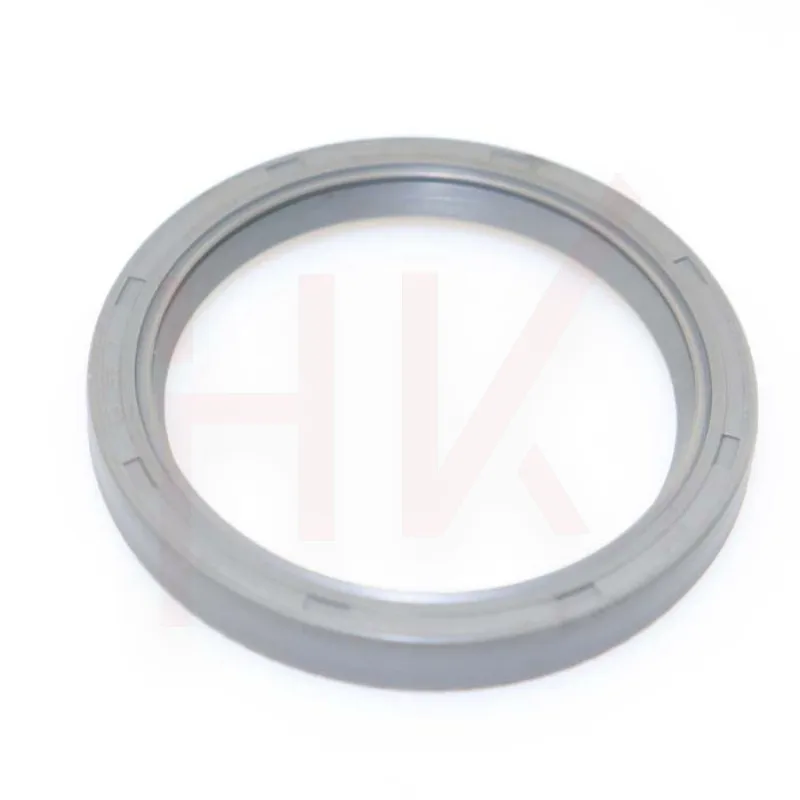Zář . 28, 2024 18:39 Back to list
Understanding Rotary Shaft Oil Seals and Their Importance in Machinery Performance
Understanding Rotary Shaft Oil Seals A Comprehensive Overview
Rotary shaft oil seals are critical components used in a wide range of machinery and equipment. Their primary function is to prevent the leakage of lubricants while simultaneously protecting the internal parts from contamination by dirt, dust, and other foreign materials. Designed as a barrier between stationary and rotating parts, oil seals are essential for ensuring the efficiency and longevity of mechanical systems.
Structure and Function
Rotary shaft oil seals typically consist of several key components the elastomeric sealing lip, the metal or polymer body, and sometimes a spring that helps maintain contact with the rotating shaft. The sealing lip is often made from resilient materials such as nitrile, Viton, or silicone, which provide excellent resistance to heat, oil, and other chemicals. The inner edge of the lip makes direct contact with the rotating shaft, creating a dynamic seal that prevents fluid from escaping.
The design of the oil seal allows it to withstand varying pressures and temperatures, making it suitable for applications across diverse industries, including automotive, aerospace, and industrial machinery. The effectiveness of an oil seal largely depends on its material composition and design features, which must be carefully selected based on the specific operational environment.
Applications
Rotary shaft oil seals are utilized in numerous applications where rotating shafts are present. In automotive contexts, they are commonly found in engines, transmissions, and differentials, where they seal oil and prevent leaks that could lead to significant mechanical issues. In industrial machinery, these seals are employed in pumps, motors, and gearboxes, ensuring that lubricants remain contained while keeping contaminants at bay.
The need for effective sealing solutions is paramount, as leaks can result in decreased efficiency, increased wear and tear, and ultimately, equipment failure. By preventing oil loss and protecting components from wear, rotary shaft oil seals play a crucial role in maintaining the overall health of machinery.
Types of Rotary Shaft Oil Seals
There are various types of rotary shaft oil seals, each designed for specific functions and environments. Some common types include
rotary shaft oil seals

1. Single Lip Seals This is the most common type, featuring a single sealing lip that effectively seals against the shaft. They are ideal for low-pressure applications.
2. Double Lip Seals Equipped with two sealing lips, these seals provide enhanced protection against leakage and contamination. They are commonly used in harsh environments where additional sealing is necessary.
3. Spring-loaded Seals These seals incorporate a spring that applies pressure to the sealing lip, ensuring consistent contact with the shaft. This design is particularly beneficial in applications with varying shaft speeds or misalignment.
4. Dust Seals While primarily designed to keep dirt and contaminants out, dust seals can also help retain lubrication. They are relatively simple in design and are often used in conjunction with oil seals for added protection.
Maintenance and Replacement
Regular maintenance of rotary shaft oil seals can greatly extend their lifespan. Operators should inspect seals regularly for signs of wear, such as cracks or hardening of the rubber material. If leakage is observed, immediate action is necessary to prevent further damage to equipment.
Replacement should be carried out with care, ensuring that the new seal is compatible with the specific shaft dimensions and operational conditions. Improper installation can lead to misalignment, premature failure, and potential damage to the shaft itself. It’s essential to follow manufacturer guidelines and best practices during the replacement process.
Conclusion
In conclusion, rotary shaft oil seals are indispensable components in many mechanical systems. Their ability to prevent leakage and protect against contamination significantly contributes to the performance and reliability of equipment. Understanding the functions, types, and maintenance of these seals is essential for engineers, technicians, and operators alike. By investing in quality rotary shaft oil seals and adhering to proper maintenance routines, industries can enhance operational efficiency and reduce the risk of costly breakdowns. As technology continues to advance, we can anticipate further innovations in oil seal design and materials, aimed at meeting the ever-evolving demands of modern machinery.
-
Unlocking the Potential of Hydraulic Systems with Essential Sealing Solutions
NewsAug.06,2025
-
Unleash the Power of Your Hydraulic Systems with Our Premium Seal Kits
NewsAug.06,2025
-
Specialized Hydraulic Seal Kits for Breakers, Pistons, and Presses
NewsAug.06,2025
-
Revitalize Hydraulic Systems with Premium Repair and Seal Kits
NewsAug.06,2025
-
Fortify Your Cylinders with Premium Sealing Solutions
NewsAug.06,2025
-
Elevate Hydraulic System Reliability with Specialized Seal Kits
NewsAug.06,2025
-
TCN Oil Seal Metal Ring Reinforcement for Heavy Machinery
NewsJul.25,2025
Products categories
















